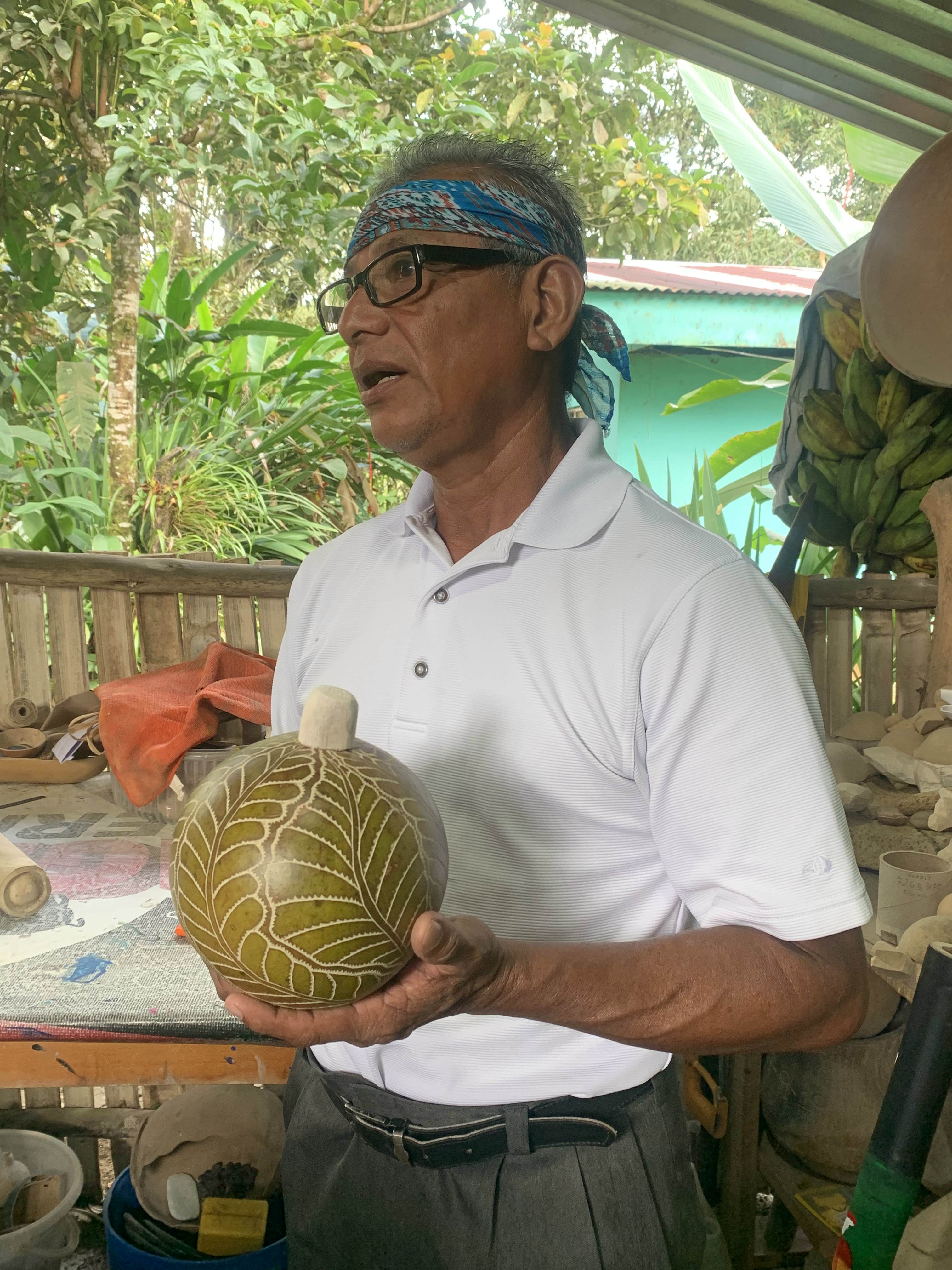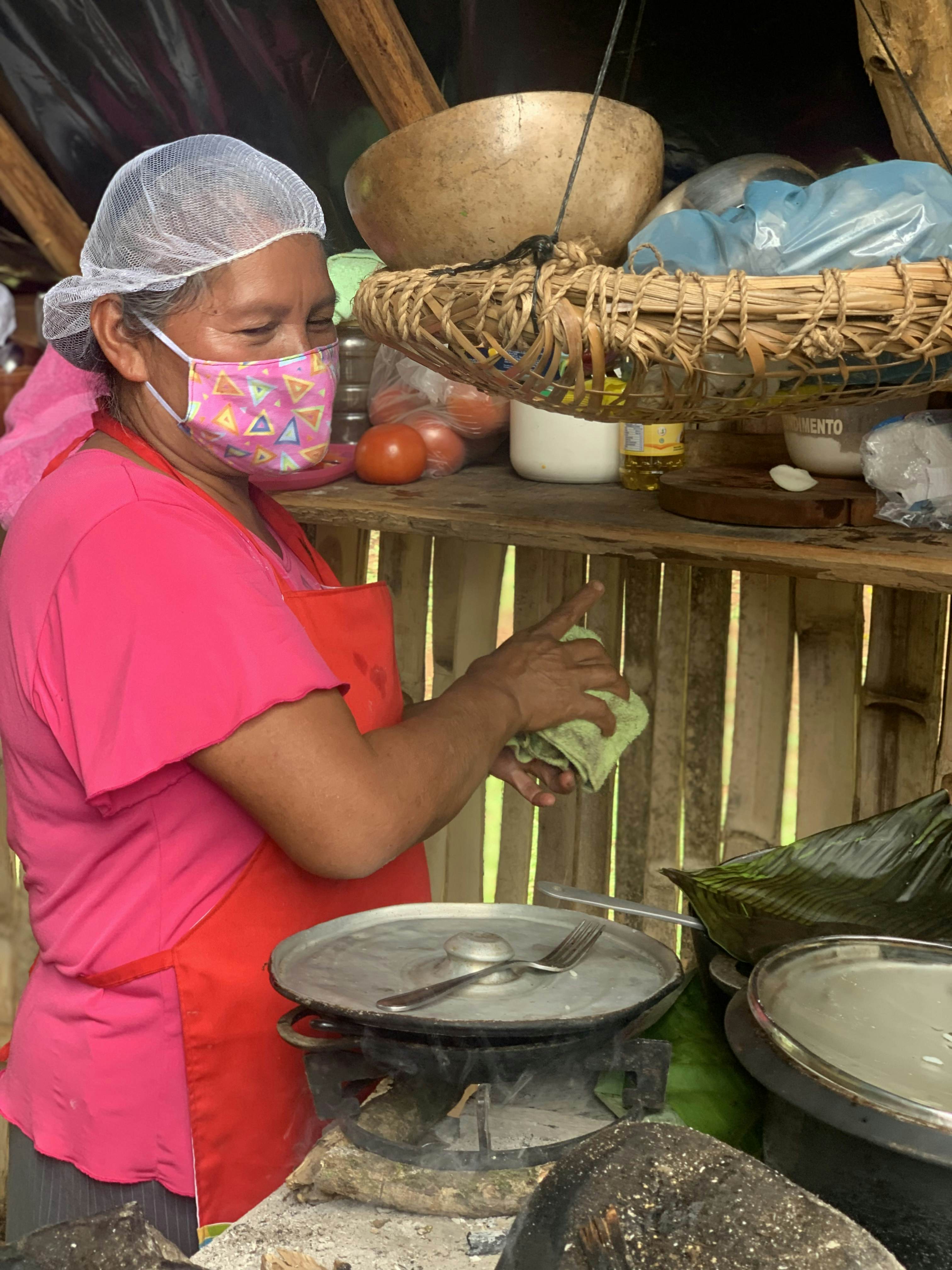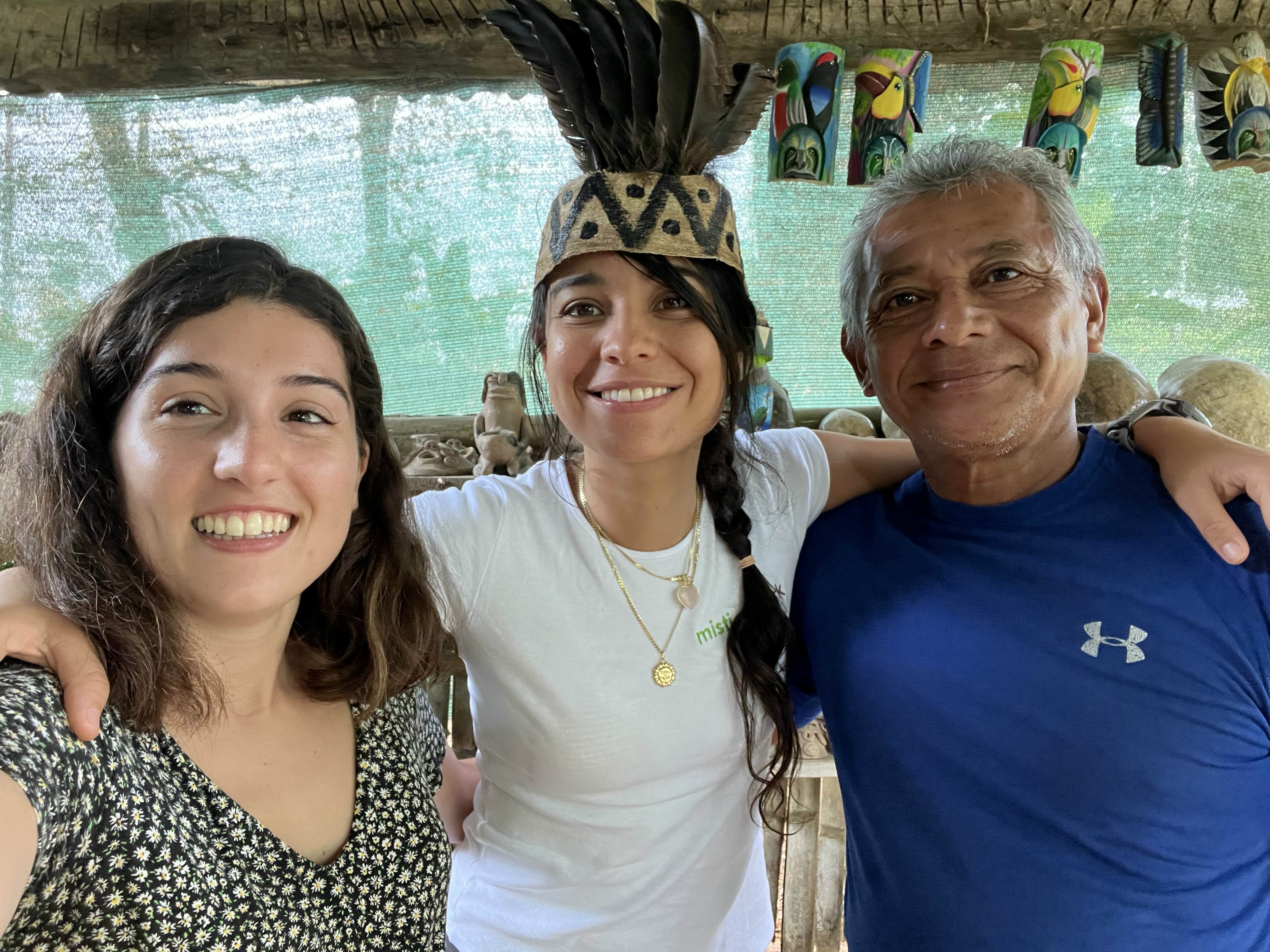Learnings in the workshop of a Maleku tribesman
From an academic perspective, we can learn that the Guatusos or Malekus are an Amerindian ethnic group in Costa Rica. They speak two languages: Maleku lhaíca and Maleku Jaika, and they are located in the northern plains of the country, specifically in the cantons of Guatuso and San Carlos, in the province of Alajuela. They are distributed in three main communities: Palenque Margarita, Palenque Tonjibe, and El Sol. This information can be easily found through a quick internet search, as most people would probably do nowadays.
However, many times, after reading all this information, the mission of connecting with the Maleku spirit is frustrated amidst so much informative text.
Is it possible to delve deeper into this culture with more vividness and emotion? Fortunately, I found a way to make it more exciting.
Tuesday, February 15, 2022. My cousin invited me to a cultural activity in Guatuso, and I decided to accept.
It's 6:10 am and I'm running a bit late, but luckily, I don't miss the transportation and manage to arrive at my destination. On the way to the place, we are informed that our visit will be at a Maleku ranch where Don Adiel will teach us about them.
We arrive at approximately 9:00 am, and we are welcomed into his pleasant workshop, located a few meters from his house. Don Adiel is a kind 64-year-old man, full of peace and life, who is part of the Maleku community. A few years ago, he decided to start his business project. His Maleku name is Nanca-Uri, and for me, that is his real name, so that's how I will refer to him from now on.
In the workshop, Nanca-Uri begins by talking to us about their idiosyncrasies, answering all the questions we ask, mainly inspired by the beautiful crafts we see around us. He enriches us by teaching us about the meaning that elements of nature, such as animals, have for them, and he talks about current issues and, what I found most interesting, the role of women in their community.
After the workshop, we take a tour through the forest, the river, and the plantations, where we meet his kind, lively, and beautiful wife, Curijuriquio, who welcomes us with a warm heart and a delicious lunch. The teachings of the Maleku lifestyle comprise a deep treasure that offers lessons for all people, regardless of gender, age, etc.
At the end of the day, we all say goodbye with a profound sense of gratitude. The encounter with the Maleku culture has been revealing and enriching, leaving us with a greater understanding and respect for the ancestral wisdom of this community.
On the way back home, I reflect on what I have learned and the importance of keeping these cultural traditions alive. I feel grateful for having had the opportunity to immerse myself in the Maleku culture and carry with me the valuable lessons they have provided.
Allow yourself to be amazed and learn from this important part of our Costa Rican society, and follow us on our social media for other cultural and ecological content. You are invited to explore and learn more about the riches of our land!












